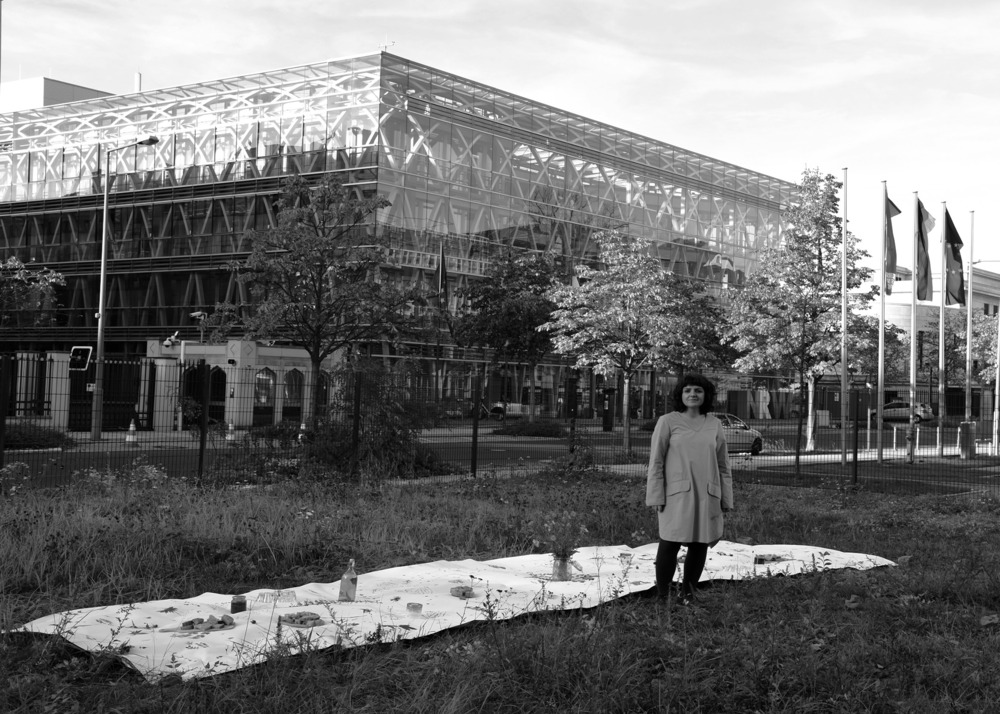
TERRENO—URBAN-ECOLOGICAL-BIOGRAPHICAL ACTION
first performed on August 18, 2019
Portuguese Embassy land, Hiroshimastraße 25, Berlin, Germany
performed twice in 2019
MARISA BENJAMIM
Berlin, Germany
083779143m083779143a083779143r083779143i083779143s083779143a083779143b083779143e083779143n083779143j083779143.083779143i083779143n083779143f083779143o083779143@083779143g083779143m083779143a083779143i083779143l083779143.083779143c083779143o083779143m
marisabenjamim.com
TERRENO—URBAN-ECOLOGICAL-BIOGRAPHICAL ACTION
MARISA BENJAMIM
“Terreno” is a reflection on cultural meanings. In 1996, Portugal bought a piece of land in Tiergarten, Berlin, where the future Portuguese Embassy is going to be built. This currently “empty” space came to life and produced its own ecosystem. I have invited people to connect, experience, and learn from plants that are growing on it, thus on Portuguese soil. Making a tour through this area and explaining in detail all my observations during four months of research: What kind of plants are sprouting on this land? What is the story behind? What meanings are unfolding from these species? Can we taste them?
The event is part of the project “Licht Luft Scheiße” (Light Air Shit). “Perspectives on Ecology and Modernity” presents a variety of twentieth-century concepts and practices that resonate with our current ideas of sustainability. They are both historical references and points of departure for novel or updated reflections on alternative ways of living in a globalized world. In light of the ongoing destruction of Planet Earth, we must fundamentally rethink our relationship to the biosphere and all non-human beings. The project’s two-year research phase culminates in two exhibitions combining contemporary art production and archive material, and a parallel independent program of education and outreach. These three aspects of the project, along with a number of complementary events and publications, address the past and present of the ecology movement, biological farming, socio-ecological urban development and natural architecture, garden culture and self-sufficiency, recycling and circular waste management, and plant and soil research.